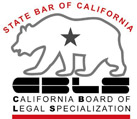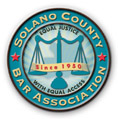Collaborative Law & Mediation Overview
What is Mediation?
Mediation is considered a form of "alternative dispute resolution" or ADR. It is a means of resolving family law, divorce or child custody disputes that allows parties to maintain control over the fate of their assets, finances and children following their separation or divorce. This is because mediation is guided by the needs, concerns, and priorities of the parties involved.
The more common method of resolving family law disputes is known as litigation, which involves turning to a busy judge for resolution on all disputed issues. Litigation is often emotionally difficult, expensive, and contentious – leaving families with hurt and anger towards one another. Many child custody professionals feel strongly that litigation is often not in a child's best interests and does not result in the most beneficial or enforceable parenting orders.
We strongly recommend mediation in almost all family law cases, particularly those involving children. To learn more about child custody mediation and other forms of alternative dispute resolution, review our Collaborative Divorce, Mediation & Alternative Dispute Resolution, and Child Custody Mediation services to determine which approach will work best for your family.
Contact us today to find out if mediation is right for you.
What is Collaborative Law? Does it work for custody disputes?
Collaborative Law, including Collaborative Divorce, is ideally suited to helping families manage custodial conflicts. In a nutshell - the difference is a commitment to avoiding litigation. Each party still has their own attorney, with whom they can communicate sensitive matters and obtain individual advice and counsel. However, if problems simply cannot be resolved, these attorneys will offer numerous alternatives, but will not take your case to court.
The benefits include reduced stress, reduced attorney fees, reduced court costs, preservation of an effective co-parenting relationship, orders tailored to the needs of your family, confidentiality, and access to a team of experienced experts (i.e. mediators, financial experts, therapists) available to assist if disputes cannot be resolved between the parties and their attorneys alone.
The family law attorneys at Russo & Prince bring many years of experience working with families, representing children, and training in collaborative practice to all areas of family law - but especially those cases dealing with child custody and parenting. This approach recognizes that the traditional litigated court system is not built for families. It prioritizes mutual respect, placing the children's needs first, and making a commitment to keep your family out of court.
Even though most family law cases settle without a court trial - the process of getting to that settlement can tear a family apart. By the time you have aired all your dirty laundry in court documents, and spent thousands of dollars on court hearings, you are no longer in a good place to hear the other parent's concerns or information fairly. That's just human nature. And those rare individuals who are able to keep their children's needs separate, often find themselves battling against a spouse or parent who cannot.
See our "What is Collaborative Divorce?" section below for further information on our collaborative practice.
What is Collaborative Divorce?
Collaborative Law is a solutions-oriented approach to marital dissolution that seeks to preserve the long-term interests of families. In Collaborative Practice, couples who have decided to end their marriage work with a team of specially trained professionals to avoid the arbitrary and uncertain outcomes of litigation and achieve a divorce settlement that best meets the specific needs of both parties – and their children. Within the Collaborative Divorce we assist our clients in finding a constructive (rather than a destructive) way for spouses and children to transition into a new phase of their lives.
Each party selects their own individual Collaborative Attorney to advise them as to the legal aspects of their case. This is the primary difference between mediation and collaborative law. In mediation, although the parties may have their own attorneys, they often are unrepresented, and the mediator is not aligned with either party. Instead, the mediator informs both parties about their rights and duties under the law, what a court would likely order, and then helps the parties negotiate a fair and reasonable resolution to their disputes.
In collaborative divorce, each party may also select a non-legal advocate to assist them in working through the emotional (i.e., non-legal) aspects of divorce that can so often derail the possibility of settlement within the adversarial court setting.
Do you recommend mediation in all cases?
NO - as much as we believe in mediation, it is not right for every family. Mediation may not be right for you if your case involves disputes regarding child abuse or neglect, domestic violence, or serious drug or alcohol addiction. Mediation also may not be right for you if you do not trust the other party to be be candid and cooperative. This doesn't mean you have to be on great terms - but it does mean that you should at least be on speaking terms.
Mediation requires both parties to be willing to work cooperatively, even if they disagree or are not getting along. It means being able to hear and consider the recommendations of the mediating attorney. If you and your partner are in a place where you believe that agreement is simply not possible, mediation may not be a successful option.
Contact us today to learn whether mediation is right for you.
What are the benefits of Mediation & Collaborative Divorce?
The benefits are substantial. Mediation, Collaborative Divorce and other Alternative Dispute Resolution methods keep costs down, allow you to keep your family out of court, give you more control over the process, permit you to maintain confidentiality and privacy over sensitive matters, and achieve a faster resolution, which was crafted to meet the unique needs of your family.
For further resources and information about Collaborative Divorce and Mediation, visit our Mediation & Collaborative Divorce Resources page.
Let us help your family get through this difficult time with compassion and dignity. Contact Us today to learn more about our Mediation, Collaborative Law, Arbitration, Private Judging and Alternative Dispute Resolution services.
 Our
Our Criminal
Criminal Criminal
Criminal Family Law
Family Law Collaborative Law
Collaborative Law





